ROSH HASHANAH 2004/5765
As President of Temple Isaiah, one of my favorite roles is to sing the praises of the Temple; another is to give credit where credit is due. I recently corresponded with Rabbi Larry Kushner a former neighbor and a long-standing friend of our congregation, and when I reminded him where I was from, he remarked: “Temple Isaiah, one of the best shuls in Beantown.” As usual, Rabbi Kushner, famous for his wit and his wisdom, knows of what he speaks.
On this day when we pray for a good year to come, I want to thank personally those whose efforts this past year have made Temple Isaiah such a great shul. Thanks to Rabbis Jaffe and Alexander who have so ably guided our spiritual ship of state; thanks and best wishes to Cantor Leon Sher, and thanks to our volunteer choir, our guest soloists, to Rob Humphreville our accompanist, and thanks to our choir leader and principle soloist Sandy Bornstein for soulfully enriching our prayer; and welcome back to Rosalie Gerut—it’s so good to see and hear her again after so long an absence. Thanks to Betsy Herman, our Administrative Director and her staff for keeping our “ducks in a row,” and thanks to our maintenance crew under Buddy Greer’s direction for managing to keep our chairs in neat rows today and every day. Thanks to Abbe Smerling for keeping our young children safe and safely out of earshot. Thanks to the Temple Board, more than eighty people who give steadfastly of themselves to make our Jewish communal home an extension of each of our personal homes.
A special word of thanks to our High Holy Days Committee. My gratitude to Elliot Chikofsky who guided this committee for six years and transformed our procedures for the better; and special thanks to Bruce Ward, the new chairperson, who has built upon Elliot’s initiatives, and in his very short time on the job. has already contributed his own unique style to this most important role. When you enter and leave the sanctuary over these High Holy Days, please thank the ushers for the mitzvot they are performing on our behalf.
Finally, thanks to all of you who give of your time, your talent, your spirit, your intellect, and your money to enhance our synagogue. I can’t thank you all individually now, but your names and deeds will be publicly proclaimed and written and sealed in our book of gratitude for the upcoming year.
I am here this morning according to tradition to speak to you of temple business. Yet why interrupt the liturgy of Rosh Hashanah to talk business? A comment overheard after Yom Kippur a few years ago changed the composition of our services for subsequent High Holy Days. After that service, a guest said to his host words something like these: “I came here on Yom Kippur, to participate in a service of reflection and repentance, and I was greeted not with prayer, not with a sense of wonder and spirituality but with a business speech.” In response to that rather biting comment, we moved the President’s Address from Yom Kippur morning to this morning, because Rosh Hashanah is arguably a less solemn moment and perhaps more accommodating to business talk. Yet I must ask again, why interrupt the liturgy of either High Holy Day to talk business?
The answer came to me this past spring. In the midst of our annual suburban landscape restoration ritual, there appeared a new planting of sorts on many of the lawns in the East Lexington area. It quickly spread to surrounding neighborhoods, yet it wasn’t a plant at all but a placard, a red and white sign with the words, SAVE SACRED HEART CHURCH.
For those of you unfamiliar with this issue, Sacred Heart Church on the corner of Follen Rd. and Mass. Ave is one of two Roman Catholic parishes in Lexington, the other being St. Brigid. Because of the current fiscal crisis in the Archdiocese of Boston, sixty-five parishes will be shuttered by late fall, and Sacred Heart is slated to close November 21st. The congregation will be absorbed by St. Brigid, and the church, a Lexington landmark since 1931, will be sold.
I knew all this before I saw the signs. Yet, I was still startled by their presence and a bit puzzled by their wording. Who is to save Sacred Heart? To whom are the signs speaking? Are they rallying the troops as with a blast of the shofar, are they asking for their neighbors’ help—our help—to save their church, or are they simply beseeching God as we do during these Days of Awe to safeguard the life of their community?
Sacred Heart, I am told, is a healthy, fiscally sound, and active Catholic congregation. While they are not as large as St. Brigid, they claim to be a more vibrant community. They are known to be more liberal and more critical of the policies and politics of the archdiocese. True to their reputation, they publicly challenged the archdiocese’s analysis that lead to this decision. The Archbishop’s representative responded by reminding Sacred Heart that the Archbishop and his priestly advisors have absolute authority over the closure of a parish. The current public position is that the congregants of Sacred Heart have little if any standing in the decision and should entertain no hope of reversal. And why? Simply stated, they are neither the owners nor the administrators of their spiritual home. They do not own their real estate, they do not employ their clergy, their lay leaders have minimal fiduciary responsibility, and the moneys they contribute to their church do not buy them a seat around the table where the major decisions are made. Sadly for them, the congregants of Sacred Heart are barely renters and as such have very limited say in how the landlords treat their religious home. We are told that no amount of prayer and repentance will avert this severe decree. Let us add the names of our friends and neighbors from Sacred Heart to those for whom we pray during these High Holy Days.
We, the congregants of Temple Isaiah, on the other hand, are the owners of our religious home. We own the property, employ the clergy and staff, choose the prayer books, and elect the governing body, your Board of Trustees. And if that were not enough, we also sustain the hierarchy above us, namely, the Union for Reform Judaism and the Hebrew Union College where our clergy and educators are trained. We have extraordinary power and with this power comes equally extraordinary responsibility. Since you have elected your Board to administer Temple Isaiah, I report to you today at the onset of these Days of Awe regarding the state of our synagogue and to remind us all of the richness of our resources and the wonderful opportunities that lie before us.
And what is the state of our synagogue?
Our synagogue is confident and proud; it heeds the criticism of a single individual.
Our synagogue is large and teeming with activity; it offers us moments of true intimacy.
Our synagogue seeks to please the many; it does not ignore the few.
Our synagogue is beautiful but not showy; its true beauty lies within the souls that comprise it.
Our synagogue asks much from each one of us; it offers much more to each of us in return.
Our synagogue is the anchor of our Jewish community, without it we would be adrift.
Our synagogue wrestles to serve the Jews as the Jews wrestle to find themselves and to find God.
We are Temple Isaiah. Our synagogue is fashioned in our image. We want it to be the best shul around and we succeed when it reflects our values, when we infuse it with our vitality and intellectual and spiritual yearning and when we settle for nothing short of the best in all areas of our endeavor. If on occasion we fall short of the mark, it isn’t because we can do no better—instead it is because we have ignored that still soft voice inside us reminding us not to be complacent, reminding us how important our work is, and reminding us how much work is yet to be done.
Over the course of this coming year your synagogue board will be listening to that voice and will address issues whose resolution is essential to the fulfillment of our mission. I hope you will share in my excitement for our upcoming agenda, and that you will embrace this agenda as your own.
* We will embark upon a search for a cantor determined to find the right cantor for all of us.
* We will fully subscribe the Super Dues program we unveiled this spring. Super Dues is critical to our future fiscal health, and I hope everyone financially capable of doing so will join me by enrolling in this program. Your investment will be a sound one, and you will be thanked and rewarded for your commitment.
* We will fulfill our temple’s youth education mission by fostering the best Temple-based Jewish educational program possible and by communicating that accomplishment clearly, loudly and confidently to everyone within earshot.
* We will promote steady and sustained membership growth. Increasing our numbers is absolutely essential to our future vitality and to our future financial stability.
* We will expand our social action horizons to address the causes of social injustice as well as treating the symptoms.
* We will enhance our programs for recruiting and training lay volunteers and leaders so as to ensure an uninterrupted line of synagogue stewards well into the future.
* We will enrich our worship experiences so that Friday evening exhaustion and post-work melt down become reasons for coming to services not excuses for staying home in front of the TV.
* Finally, we will look at ourselves as through the eyes of a stranger. If we can provide that stranger with a transformative experience, then we can be confident we are serving our entire Temple family well.
We will communicate to you via the bulletin, congregational meetings, e-mail notices, and open forums. We urge you to add your voices to ours since the brightness of our synagogue’s future depends upon our hearing each other’s voices faithfully.
If I were inclined to speak to you via lawn placard, I would not ask that Temple Isaiah be saved, since it does not need saving. It simply needs ongoing maintenance and loving support from those who are responsible for it—from you, its owners. Instead, my sign would beseech God to give us the wisdom, the strength, the resources, and the ongoing commitment to protect and to perpetuate our holy congregation. That is perhaps too much sentiment for most peoples’ lawns, and in any case such lofty words can already be found in the very liturgy to which we will return momentarily.
Instead my placard would simply read: L’SHANA TOVA TIKATEVU. May our Jewish community be all that it can be, and may it be written in the book of life for yet another very good year.
On behalf of your Board of Trustees, on behalf of my family and myself, may you and you loved ones enjoy a very fulfilling New Year.
L’Shana Tova
Robert Atkind
President, Temple Isaiah





